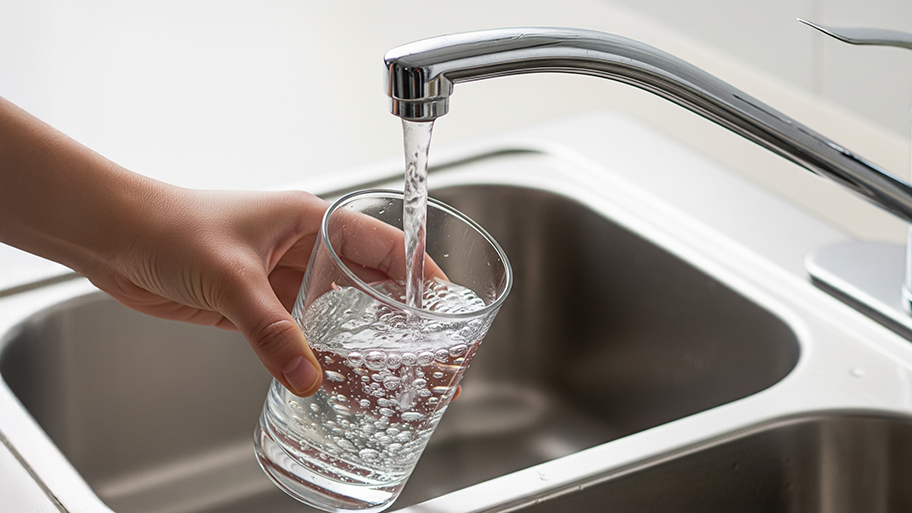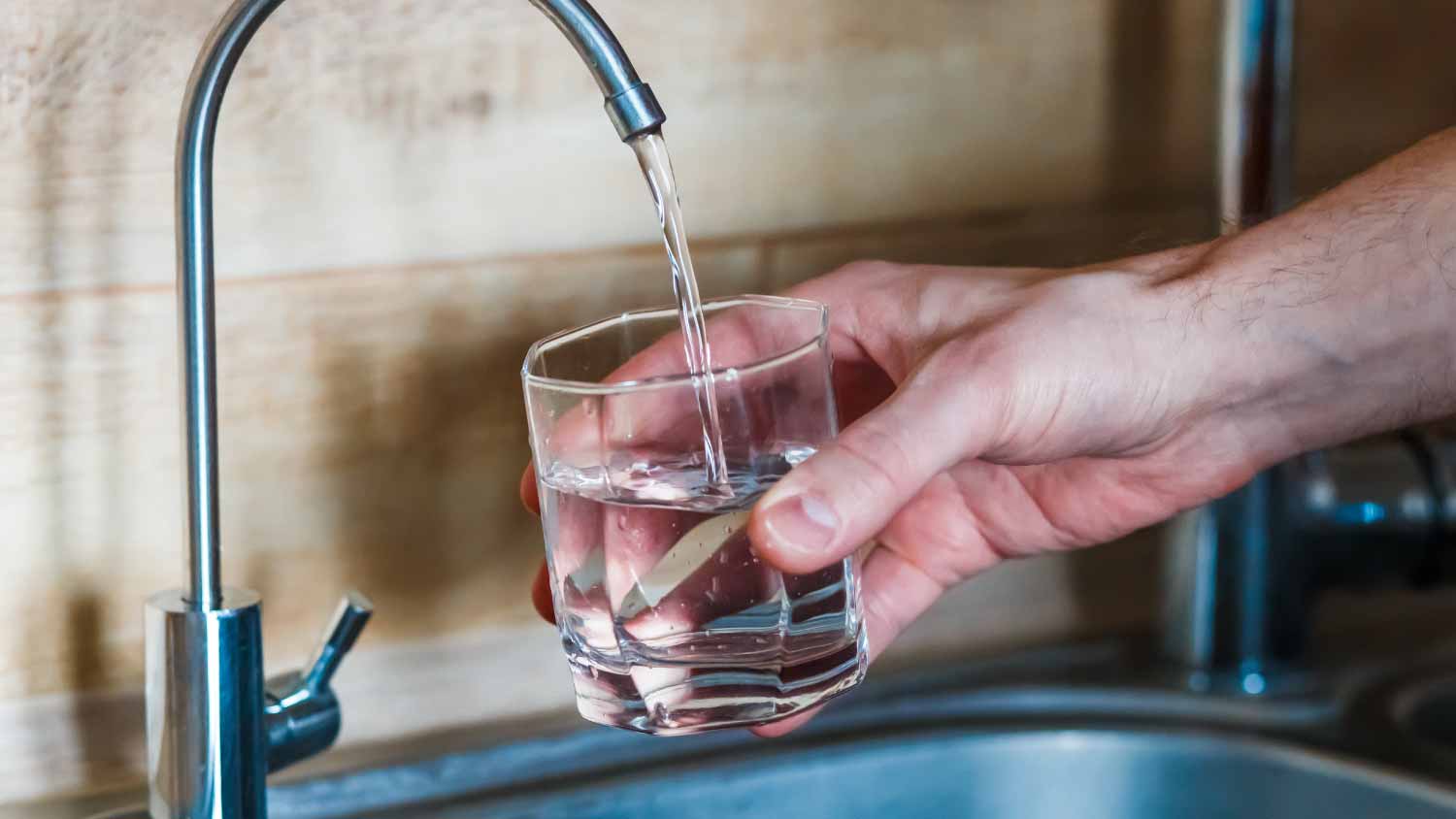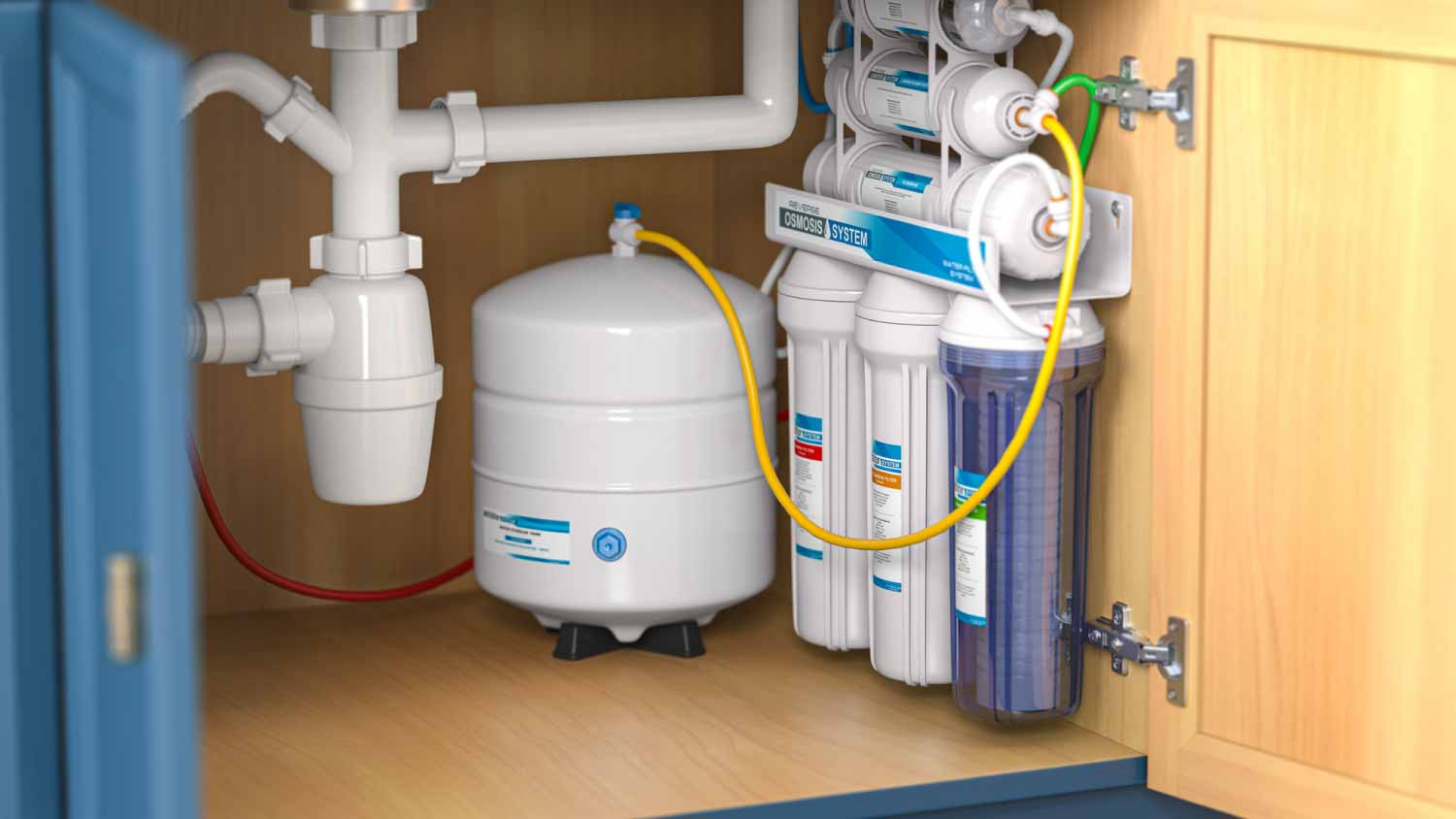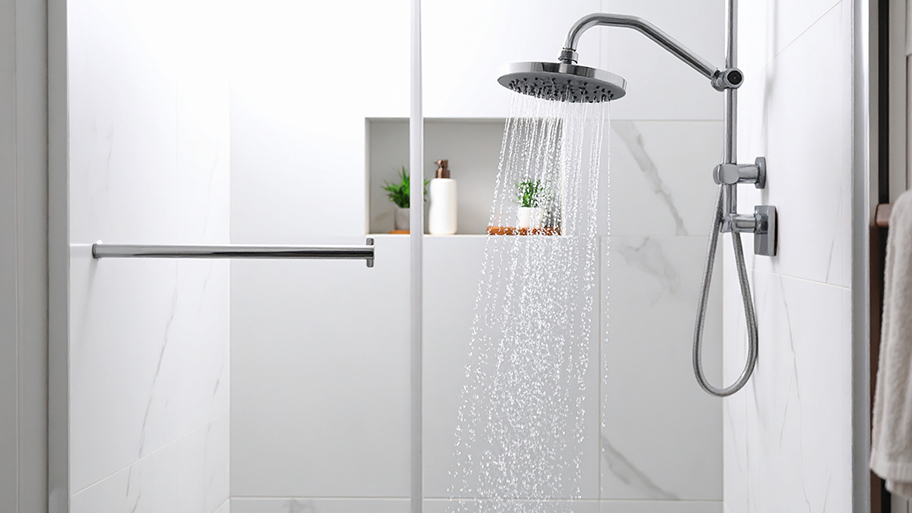
On average, a reverse osmosis water filter costs around $2,200, but there are a few variables that impact the total price. Learn about them in this guide.
Make a clean decision


Water purifiers remove contaminants and minerals, but they aren’t necessary for home use.
Water filters are best for your home because they remove contaminants but not essential minerals.
You can buy whole-house systems or point-of-use (only attached to one water source) water filters.
Water filters range from $20 to $4,000 based on the type.
From rinsing your fruits and vegetables to filling your water bottle, clean water in your home means health and peace of mind. A water purifier, specifically a water filter, can help remove contaminants and improve the water's taste and smell. Learn about what a water purifier is, how it’s different from a water filter, and the pros, cons, and costs.
A water purifier removes impurities, minerals, chemicals, suspended solids, gases, and biological contaminants. It also helps reduce particulate matter such as parasites, bacteria, viruses, algae, and fungi. Water purifiers use one or more methods to decontaminate water, including reverse osmosis (RO), distillation, and UV treatment.
However, water purifiers are used at the municipality level to meet national clean water standards, so the water coming into your home is already purified. Because of this, you need a water filter for your home, not a water purifier.

Water purifiers and water filters are often used interchangeably, but they are two distinct systems with different outcomes. Water purifiers are mostly used at the city or county level to meet national water standards and are not needed for home use. Water purifiers also remove necessary minerals, whereas water filters remove harmful contaminants but keep the minerals that are good for you, such as calcium, magnesium, fluoride, and zinc.
A water filter serves as a physical barrier to trap debris and bacteria. The water flows through a barrier or membrane to make the water safe for drinking and cooking. A filter removes contaminants like mercury, lead, arsenic, rust, iron, and chlorine. A water filter often improves drinking water's taste and smell and lowers the pH level.
There are many types of water filters, from mechanical to ceramic filters. On top of the filter type, homeowners can choose either a whole-house system, also called a point-of-entry (POE) filter, or opt for a point-of-use (POU) system, such as a faucet-mounted filter or a water pitcher.
Many homeowners have a water filter system, whether on a large or small scale. Here are the main pros and cons of a water filter.
| Pros | Cons |
|---|---|
| Better-tasting water | Whole-house models are expensive |
| Cleaner water for cooking, drinking, and brushing teeth | May not be necessary for all water in the home |
| Removes contaminants like chlorine, lead, and bacteria | Can cause a drop in water pressure |
| Extends the life span of plumbing and appliances | Requires regular filter changes and maintenance |
| Provides an improvement in hair and skin |

Water purifiers and filters use reverse osmosis (RO), distillation, UV treatment, or specific types of filters, such as carbon and sediment filters. Some purifiers use more than one method.
Carbon filters remove chlorine, reducing the chance of poor-tasting water. Whole-house systems with carbon filters are the most cost-friendly whole-house options and require the least maintenance. Media filters capture debris and other solid matter with a woven filter to improve water quality.
A reverse osmosis water purifier works like a filter, forcing the water particles through a small semi-permeable membrane to screen out contaminants. It removes minerals, including healthy ones, so if you go this route, you’ll want to pair it with a remineralizer.
A purifier using distillation boils the water and captures the clean steam, which then gets collected and purified. The contaminant particles are left behind. Some distillation systems need additional filtration.
There are many different types of water filtration technologies. When one technology is not enough, ask a local water filtration pro how you can combine technologies to reach your water treatment goals.
UV treatment uses ultraviolet light to kill living microorganisms such as viruses, parasites, and bacteria but doesn’t capture sediment. UV filters are only suitable for treating drinking water and are too slow to be whole-house filters.
The cost of whole-house water filtration systems ranges from $1,000 to $4,000, depending on how advanced the system is. Point-of-use units cost anywhere from $20 to $1,200, depending on the system. For example, a water filter pitcher can cost anywhere from $20 to $100.
According to data from Angi customers, roughly 36% of homeowners have reported an unusual taste or odor in their home’s drinking water. Some people describe it as a rotten egg or chemical smell, while others say the water tastes metallic or salty. In most cases, hiring a professional can help identify the source of the issue and recommend the best fix.
Whole-house water filtration systems last 15 to 25 years, depending on the type of system and how well it is maintained. Depending on your filter and sediment level, you’ll need to change the filter once every one to two years. For point-of-use filters, you may need to change the filter once every three to six months.
You’ll need to determine what contaminants you want to filter out, such as chlorine or lead. Remember, not every home needs a water filter. Look up the quality of water in your area on the Environmental Working Group database or contact your local water utility for more info. You can also test your water with a home kit or work with a professional lab to determine your water quality.
Once you know the contaminants in your water, you can select a type of water filter. You may opt for a whole-home system or a point-of-use filter just for drinking water.
You can install a faucet-mounted filter or under-the-sink unit by following the manufacturer’s instructions. But it’s best to hire a pro for a whole-house filtration system since it involves draining your water system, cutting pipes, and soldering. Contact a local water softener installation company to determine the best plan for your home water purification.
From average costs to expert advice, get all the answers you need to get your job done.

On average, a reverse osmosis water filter costs around $2,200, but there are a few variables that impact the total price. Learn about them in this guide.

Water softener repair costs can add up, but they’re almost always worthwhile. Use this guide to see what your project is going to cost before you get started.

Wondering about water treatment system costs? Learn average prices, key cost factors, and ways to save on installation and maintenance for your home.

Follow these water softener maintenance tips to keep minerals out of your water, avoid malfunctions, and prolong your unit’s service life.

What causes hard water? An excess of minerals, like calcium and magnesium, are the culprit, but water softeners can decrease the problem.

Trying to decide between the different types of water softeners? Our guide will help you choose the right salt-based or salt-free option for your home.